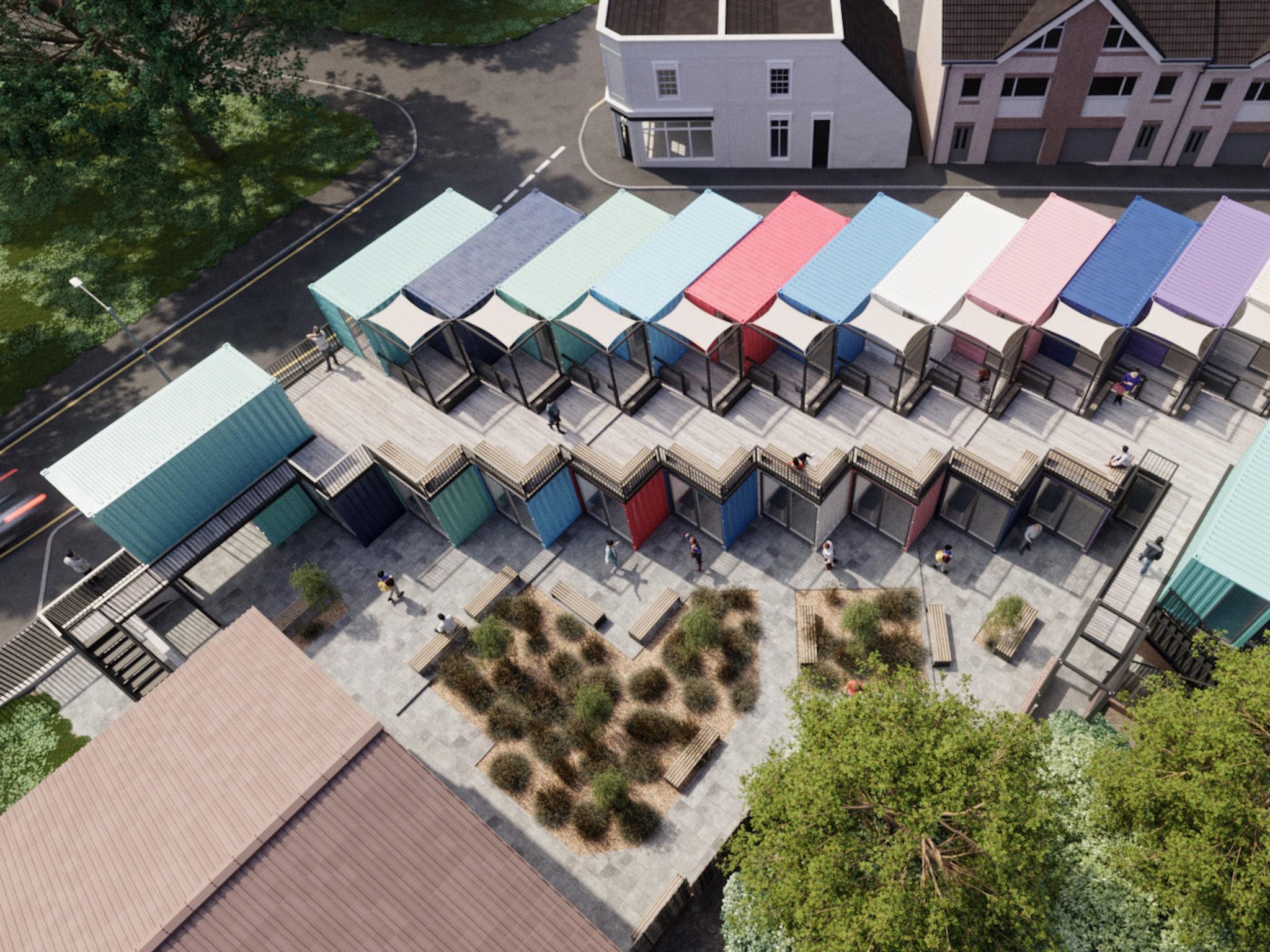The Bristol micro-settlement where all voices can be heard
Bristol University is expanding to the historically poor Barton Hill, where it hopes its mini-campus will reach non-traditional students and inspire others to consider entrepreneurship, Hazel Sheffield reports

Lydia Samuel has noticed that many entrepreneurs in the Barton Hill area of Bristol are linked by one common theme. “People [in Barton Hill] want to run businesses to help other people,” Samuel says. She is an entrepreneurship facilitator for ACH, a social enterprise resettling refugees through labour markets and social integration in Bristol. “They see a need, whether it be childcare or learning to drive.”
Since she was appointed last September, Samuel has worked with a woman who wanted to become a driving instructor and a man who restores games machines. One group set up a Somali kitchen, others want to be hairdressers and some are getting accredited to do childminding, to address a local shortage of childcare.
Barton Hill might be one of the poorer areas of Bristol. But those who work there know it is rich with enterprises solving the real-life problems of its dense and diverse working-class communities.
Samuel’s work is part of outreach by the University of Bristol as it plans its new Temple Quarter Enterprise Campus, one of the biggest regeneration projects that has ever taken place in the city. The university is developing three buildings on the site of one of the famous Bristol eyesores, the old multi-storey sorting office next to Temple Meads train station. The campus, which will focus on business and digital research when it opens in 2022, comprises a digital innovation centre, a business school and a student residential village.
What’s more, the university will become a tenant in a new micro settlement planned by one of the oldest community organisations in Barton Hill – the Barton Hill Settlement.
The area, where 46 per cent of children grow up in poverty, has always been poor, according to Joanna Holmes, chief executive of Barton Hill Settlement. But in the last 15 years it has switched from 90 per cent white to 70 per cent black and ethnic minorities at the same time as the population grew 50 per cent bigger. “As the rest of Bristol gets richer, Barton Hill gets poorer,” Holmes says.
The micro settlement will extend her organisation’s existing community hub with 12 new shipping containers in a former carpark. Funding for the ground floor comes from Power to Change, a Lottery-funded organisation that supports community businesses.
The university will rent three of the containers, alongside other refugee- and community-focused businesses. There will also be 11 micro homes for local people who need short term accommodation to allow them to study, train, or start new businesses.
The partnership’s origins are not new. As part of an outreach programme, the university set up Barton Hill Settlement in 1911 as an independent organisation to provide activities and research opportunities for locals, as well as to campaign for better living conditions. The settlement ran an open air school for children with chest diseases such as tuberculosis, and a school for mothers. The settlement became a community association in the Seventies and lost its links with the university around the same time.
The revival of the partnership marks the university’s intention to take on more of a civic role in Bristol. “At the heart of what we’re trying to do is reimagine our role within the city,” says Jessica Sharratt, engagement and enterprise associate of the Temple Quarter campus at the University of Bristol.
The reasons for this are twofold, Sharratt says. “Bristol has a reputation as an affluent and tech-savvy city but it has its fair share of challenges, including stark levels of inequality as you move through the city,” she says.
“At the same time, we are facing questions as a society about inclusion, tech, democracy and climate change. We’re hoping Temple Quarter will be a place where all voices on these issues can be heard.”
In 2017, Bristol was declared the worst city in the country on an index of multiple inequality by the Runnymede Trust, a race and inequality think tank. The report, which looked at data from 2001 and 2011, found that ethnic minorities in Bristol experience greater disadvantage in education and employment than they would do anywhere else in the UK.
The Barton Hill Settlement has been establishing needs in the area and working with the university to make sure that people from this area can more easily access what Bristol University has to offer. “One of the ways is creating affordable homes for people to live in,’ Holmes says.
The micro settlement’s 11 compact live-and-study spaces will be available for non-traditional university students.
Holmes says: “They might be older students or Somali tenants from high rise blocks, living with eight kids in a two-bed – how can you learn there? A lot of students don’t fit into the category of young, upwardly mobile and middle-class.”
Holmes came to Barton Hill in the Nineties and started attending the settlement’s Family Centre with her two children. She says it was important for the community to own its micro settlement and for the university to become a tenant, rather than the other way round. “It has been important to us to establish a new relationship with the university which makes sure we as a community-led organisation can work in an equal partnership with them to maximise the benefits for local people.”
Lydia Samuel says the Barton Hill Settlement is the perfect organisation to deliver such a scheme. “Barton Hill is perceived as approachable and accessible,” she says. “To have a micro campus of that stature within that community is going to be exciting to people who may not have considered entrepreneurship or who have thought about it but not done anything about their ideas because the opportunities feel so far away.”
Join our commenting forum
Join thought-provoking conversations, follow other Independent readers and see their replies
Comments